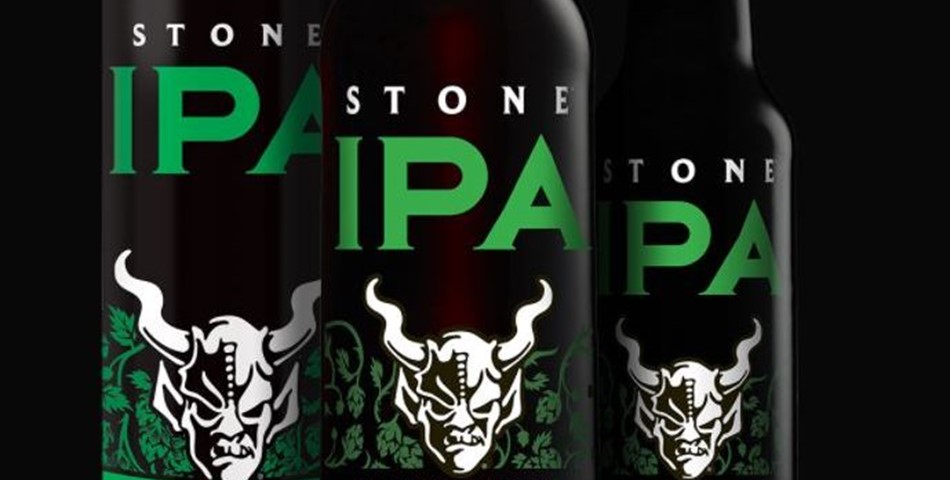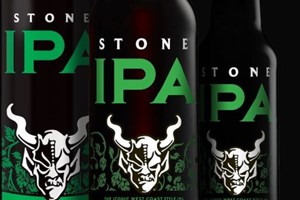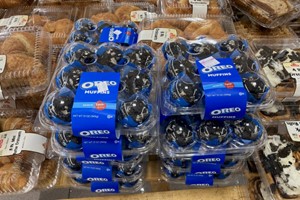Dive Brief:
- Molson Coors must pay craft beer maker Stone Brewing $56 million for creating consumer confusion after rebranding its Keystone brew as "Stone," a San Diego federal jury ruled following a three-week trial. The eight-person jury also determined Molson Coors had no predetermined intention of infringing on the trademark.
- During the time covered by the lawsuit, Molson Coors sold more than $1.7 billion of Keystone beer branded as "Stone," the craft beer maker said. In an emailed statement, Molson Coors spokesman Marty Maloney said there "are still several defenses that will be resolved by the court, and we are evaluating our options for appeal."
- This is the second major trademark dispute in the last few years for Molson Coors. Future Proof Brands accused the large beverage maker of stealing its product name for its then-new hard seltzer brand Vizzy. The case was settled in 2021.
After years of legal wrangling, California craft brewery Stone has won its lawsuit against the beer giant Molson Coors — but though the jury's decision was unanimous, the victory wasn't necessarily everything Stone may have hoped
As food and beverage makers fight for every dollar, they can amid changing consumer tastes and habits, companies are doing everything they can to protect their brands. One option is filing trademark lawsuits.
This isn't just an issue in the alcoholic beverage space. Another recent high-profile case involved Nestlé USA claiming Danone North America's Silk brand coffee creamers copied unique branding and packaging designs from its Coffee-mate Natural Bliss line. The companies settled in November. Candy maker Ferrara also won a lawsuit last month banning look-alike THC-laced Nerds.
The just-decided Molson Coors lawsuit, first filed by Stone in 2018, says the craft brewer's California-based brand is "instantly recognized by its name" and "enjoys exceptional customer loyalty and engagement, with a devoted fan base."
The lawsuit noted sales of Keystone dropped more than 25% from 2011 to 2016. At the same time, Stone said its 2017 sales totaled more than $70 million, placing it among the 10 best-selling craft brewers in the country.
For a company aiming to freshen an aging offering, it's popular to do a rebrand through a name, new packaging, or other changes. The practice helps attract consumer interest with something that is new, with the intention of coaxing them to try it again.
The beer industry has been struggling for much of the last several years. Americans — most notably younger consumers including millennials and Gen Zers — are often drinking less alcohol or turning to other offerings like spirits, craft beers or ready-to-drink products including hard seltzer. Large beer companies such as Molson Coors and its rival AB InBev have seen their market share further eroded by craft breweries using new ingredients and clever product names.
Still, Stone framed the ruling as a major underdog victory for America's ninth largest craft brewery going up against a competitor that produced about 200 times the amount of beer, they did in 2020. "This is a historic day for Stone Brewing, and for the craft beer industry," said Stone co-founder Greg Koch. "MolsonCoors threatened our heritage, but we stood up to that threat. They will put the 'Key' back in 'Keystone' ending their hostile four-year co-op of the Stone name. Cheers to our legions of fans, friends and supporters who believe in the good that craft beer brings. This is your win too."
Meanwhile, Molson Coors spokesperson Marty Maloney used the decision as an opportunity to take another swipe at Stone, insinuating that the smaller brewery had other motives for this lawsuit. "What we learned through this trial is that Stone Brewing's lawsuit was not driven by consumer confusion and that Stone Brewing has a $464 million debt to pay to their private equity investors in 2023," he was quoted as saying. In a statement to Courthouse News, Maloney added, "There are still several defenses that will be resolved by the Court and we are evaluating our options for appeal."
But in celebrating the win, Stone CEO Maria Stipp continued to push the case her company made throughout the trial: that the use of "Stone" wasn't just damaging, but purposeful. "From the moment our team saw Keystone's intentional theft of the Stone trademark, we believed this day would come," she said. "We are committed to doing everything in our power to protect the incredible reputation of the Stone brand and the passionate team who built it."
Previously, attorneys representing Molson Coors said the “Stone” nickname has long been a part of Keystone marketing. They argued shoppers were unlikely to mistake Stone’s craft products for a “budget beer” such as Keystone.
San Diego Beer News Awards winners announced
Highlights include five awards for Best Brewery, separated by region: Burgeon Beer Co. (west), North Park Beer Co. (south), Pure Project Brewing (north), Societe Brewing (central) and Stone Brewing (east). Alpine-based Mcilhenney Brewing was honored as the Best New Brewery, with Port Brewing/The Lost Abbey co-founder Tomme Arthur — featured in the April 1 edition of Hop Talk — taking home the inaugural San Diego Vanguard Brewer Award.














